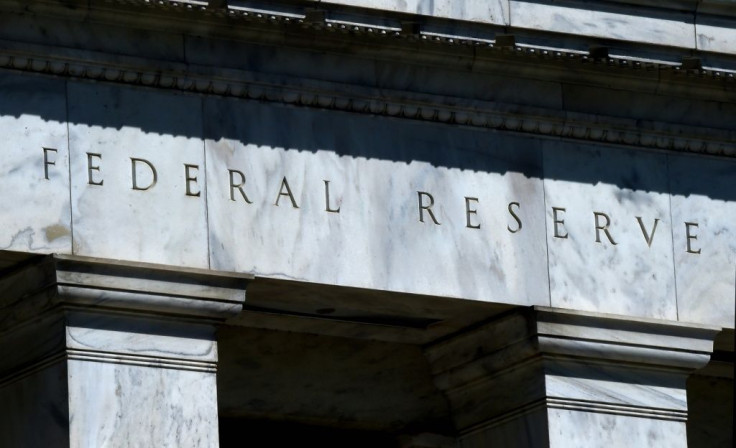Senate Banking Committee Approves Nomination Of Controversial Judy Shelton To Federal Reserve Board

KEY POINTS
- The vote was strictly along party lines – with all Republicans voting in favor, all Democrats voting against her
- Shelton has been criticized for some of her views, including a return to the gold standard
- Shelton also said the Fed wields too much power and should be kept in check.
The Senate Banking Committee has approved Judy Shelton, President Donald Trump's nominee to the Federal Reserve Board of Governors, on Tuesday.
The Committee voted by 13-12 to pass Shelton’s nomination. The vote was strictly along party lines – with all Republicans voting in favor, all Democrats voting against her.
Shelton has been criticized for some of her views, including a return to the gold standard and her stance that the Fed wields too much power and should be kept in check.
Prior to Tuesday’s vote, Sen. Mike Crapo (R-Idaho), the chairman of the Banking Committee, said Shelton provided clear answers during her confirmation hearing. Crapo has rejected calls from the Democrats on the Banking Committee for yet another hearing to consider Shelton.
“Many have tried to characterize Dr. Shelton’s views of the gold standard and monetary policy as outside of the mainstream thought and disqualifying for this position, and I strongly disagree with these characterizations,” Crapo said.
Crapo added: "I am confident that her deep understanding of the Fed’s monetary policy toolkit, monetary history and commitment to maintaining Fed independence will serve the Fed well in its ongoing efforts to stabilize markets, and toward its mission of price stability and full employment.”
Democrats on the Banking Committee remained skeptical of Shelton.
“When we have no leadership from our President, and the Federal Reserve Chair is one of the only leaders trying to guide our recovery, putting one of the president’s close advisors on the Fed board will only make things worse,” said Sen. Sherrod Brown (D-Ohio), the senior Democrat on the banking committee, before the vote. “The last thing we need right now is more price volatility and instability that will only end up hurting working families and businesses more. This is why [Fed] independence matters.”
Brown later tweeted: “Returning the U.S. to a gold standard is a terrible idea, and it's dangerous for our economy. But that's what Judy Shelton has spent her career advocating for. She is not fit for the Federal Reserve board.”
Sen. Elizabeth Warren (D-Mass.) also said that “confirming Judy Shelton to the Federal Reserve is a mistake, and it will endanger our economy."
Nonetheless, Shelton is expected to be approved by the full Senate, which currently has a Republican majority.
Shelton’s Democratic opponents also worry that if Trump is reelected, he will try to make Shelton the Fed chairman by refusing to renominate the current chief, Jerome Powell, with whom Trump has tangled.
Claudia Sahm, a former Fed economist, said that “if [Shelton] goes off in a really different direction as a [Fed] governor, she will not be able to do damage. And yet, she’s not going to add value. And we need value.”
Similarly, Sarah Boom Raskin, a former Fed governor and top Treasury official, said: “The economic moment right now is too precarious to be rolling the dice on a person [Shelton] who has not wrestled with the current challenges of managing an economy that has been shocked by a pandemic, and whose views have not been fully articulated or reconciled with prior views.”
In September 2008, Shelton wrote an op-ed in the Wall Street Journal where she criticized the enormous power held by the Fed boss.
“If capitalism depends on designating a person of godlike abilities to manage demand and supply for all forms of money and credit -- currency, demand deposits, money-market funds, repurchase agreements, equities, mortgages, corporate debt -- we are as doomed as those wretched citizens who relied on central planning for their economic salvation,” she wrote. “It is time to take on the task of establishing a new foundation for international economic relations and financial relations -- one dedicated to open markets and based on monetary integrity.”
© Copyright IBTimes 2025. All rights reserved.





















